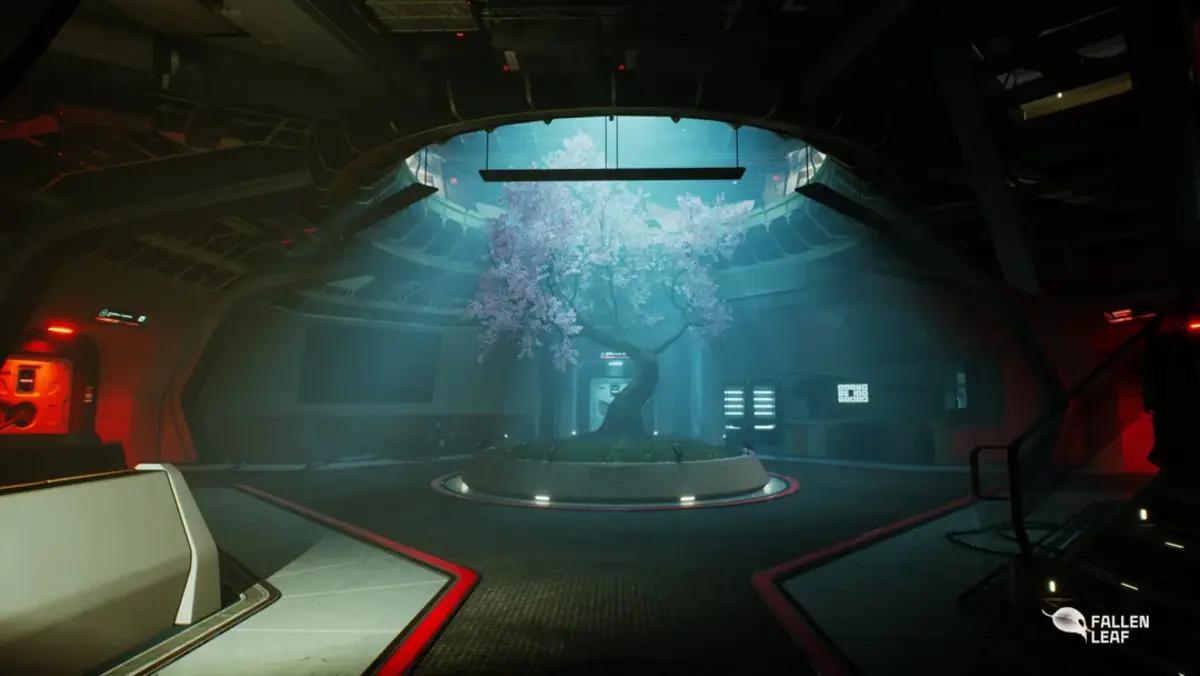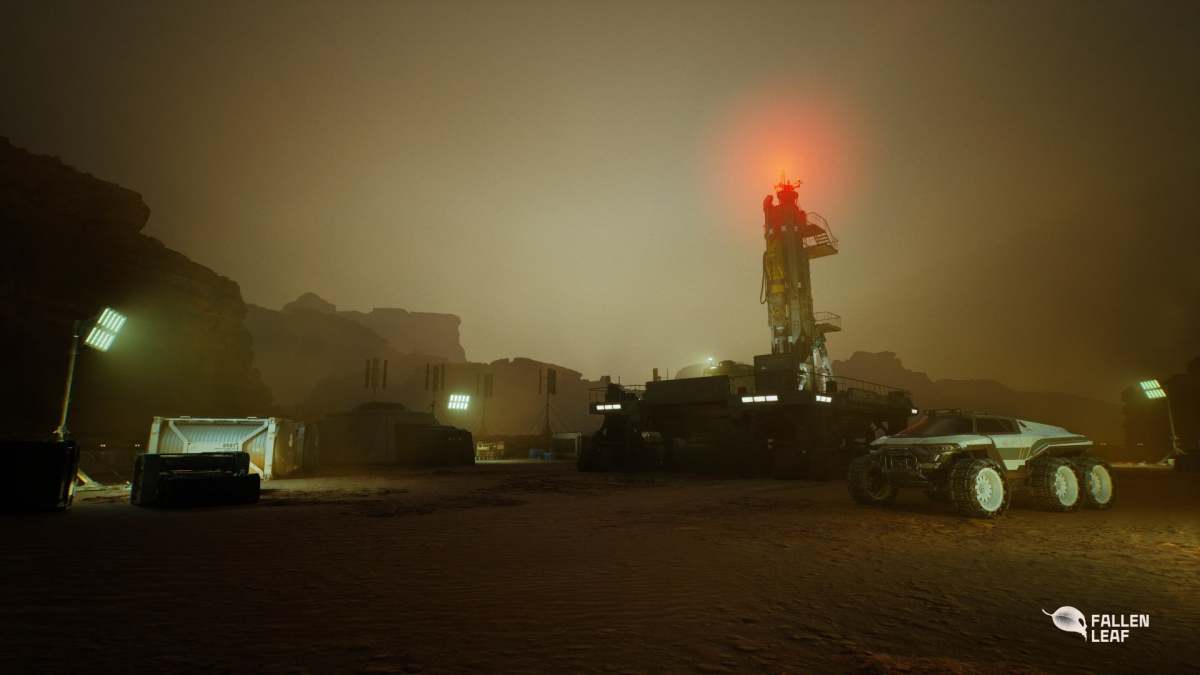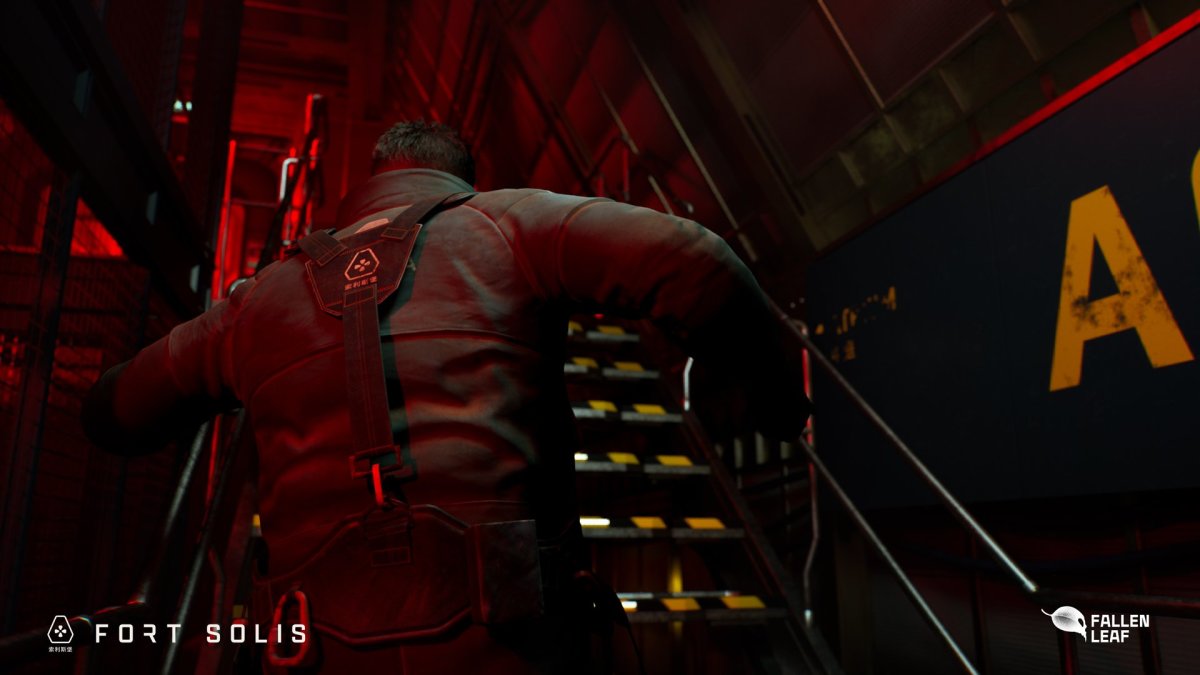Fort Solis and its “very violent” grounded sci-fi

Fort Solis might have been revealed alongside a Dead Space remake and The Callisto Protocol, but it’s offering up a completely different take on sci-fi horror. It wants to get in your head and drill down, exploring the interpersonal conflicts that can occur when people get cabin fever in space.
As engineer Jack Leary (played by Red Dead Redemption 2’s Roger Clark), you respond to a routine alarm before things unravel across one long night on a Martian base. As an outsider, you’re tasked with rifling through the aftermath of this major HR issue – an interesting departure in a genre filled with gangly aliens and mining lasers.
The idea for the story was born from the new studio’s constraints. The high-fidelity trailers might have convinced people that Fort Solis is a triple-A production, but this is indie studio Fallen Leaf’s debut project. The Mars base you’re exploring is home to only six people. The story the game tells is tight and linear. Characters and performances are at the forefront.

Game director James Tinsdale says he hopes to deliver an HBO-quality story. “We're gonna make a next-generation, visual, narrative game,” Tinsdale explains. “It has to fit the storytelling of those shows. Because if it’s not, they’re already getting it elsewhere. That’s why you get the actors like Troy [Baker] and Roger [Clark], because they can do these extremely intense scenes. You need these guys to sell the characters. It all comes back to characters.”
Much of this character work will come from you rifling through personnel logs, trying to piece together what happened, who’s responsible, and why there are bloodstains in the medical bay. That’s where the interactive element comes in. As you explore Mars and try to figure out what went wrong, a creeping sense of isolation will burrow into your grey matter. Some of the best horror stories play on the threat of something horrific, but sometimes they fall off when the monster closet actually opens. Being grounded sci-fi, the closet will stay firmly shut in Fort Solis.
“We want you to feel vulnerable,” Tinsdale says. “We want you to feel alone. We want you to feel like Jack does when he responds to this intense pressure and violence. When you see all the decisions come your way. We really want you to have an emotive response to all of it. Even when it's finished, we want you to still talk about it.”

We’ve all been forced to work with someone we don’t like at some point in our lives, but imagine that situation when you’re breathing the same recycled air as them for years, with no way of ever leaving. Would you still treat them the same way if you’re exposed to an emergency situation? The best stories teach us things about ourselves, and video games allow us to have a more intimate connection to a character’s decisions.
To reinforce this grounded story, the sci-fi elements are “soft”. There aren’t any holograms or futuristic tech – it’s all the kinds of things you might see at NASA today. All of this was built to keep you anchored in a believable, human story. The fear is more likely to come from an oxygen mask cracking than an alien smashing through an air vent. More season one of The Expanse than Star Trek.

This grounded setting is reinforced in the gameplay interactions. “We don't have hologram puzzles,” Tinsdale says. “You pull up a panel because you’re an engineer, obviously, and there are just loads of crappy wires and you’re fixing this stuff.”
Of course, it won’t just be about fixing panels. Tinsdale says the game is “very violent”, even though it’s not a combat-based experience. It riffs off the same power that makes a single gunshot in a story like Of Mice and Men to be many times more powerful than one in a film like John Wick. You’re not a soldier and you won’t have a weapon. “It’s not a case of quantity,” he says. “We want to give you some real intensity. If you’re walking around with a gun, you’re looking for a fight.”
Whether you’re looking for one or not, Fort Solis will give you a fight when it launches later this year.
